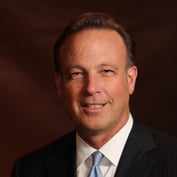Financial advisors are attractive fraud targets. Why? Because they are the gatekeepers through which new business flows. To open that gate, scammers often hold themselves out as legitimate insurance companies or investment providers, when in fact they have failed to secure the requisite insurance- or securities-department approvals. When advisor clients’ are left holding the bag, advisors will often get punished for not doing their due diligence. Don’t let this happen to you.
According to the Florida Office of Insurance Regulation (FOIR), scammers are good at fabricating marketing materials that appear authentic in both the health-and-welfare and investment areas. They base their appeals on dramatic cost savings or higher than normal investment returns, but their claims often fall short in reality.








 March 29, 2013 at 07:35 AM
March 29, 2013 at 07:35 AM









